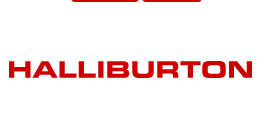Job Duties and Qualifications
Under direct supervision, rigs up and rigs down cementing service equipment on work locations to include spotting of cement storage vessels, pre-mixing of spacer fluids, identifying additives to be mixed on-the-fly, rigging-up appropriate data monitoring equipment, planning emergency backup equipment and contingencies. Learns to perform pre-job calculations related to: pipe capacities and volume/height math, plug landing pressures, absolute volumes (including total water requirements for job), hydrostatic and differential pressure, resulting forces, balanced plugs, bulk cement blending, calculations to include liquid additives and weighted spacers, and pressure to reverse. Learns to complete documents, reports, and forms related to the cementing service performed. Trains and provides guidance to operator assistants in the proper performance of pre-trip and post-trip vehicle inspections and associated paperwork and/or reports. Trains operator assistants in the operation of some or all of the following: cement pumping and mixed equipment, blenders, liquid additive metering systems, centrifugal pumps, data acquisition systems, Automatic Density Control (ADC) systems, bulk cement blending, delivery, and storage systems, manifold equipment, and cementing plug releasing tools. Demonstrates basic knowledge of products such as cementing blends, spacer fluid systems, sodium silicate fluid system, loss circulation additives, casing attachments, float equipment, multiple stage cementing tools, and squeeze packers. Understands basic lab test data such as pump time, density, yield, water ratio, etc. Job tasks, correctly performed, impact indirectly on cost containment, efficiency, profitability or operations. Consequences of error are easily measured and can be confined. Skills are typically acquired through successful completion of high school or similar education and at least 6 months of experience as an Operator Asst-Cementing, II. Licensure to drive commercial equipment may be required. May require I-Learn courses: General Hydraulics for Downhole Tools and Essential Preventative Maintenance. Given the nature of oil field service work, the ability to communicate effectively with others is necessary. Promotes safety awareness and environmental consciousness, and complies with all applicable safety and environmental procedures and regulations. Ensures compliance with Health, Safety, and Environmental (HSE) regulations and guidelines. Promotes and takes an active part in quality improvement processes. A passing score on job-related tests or meeting task guidelines is required.

Be the first to comment